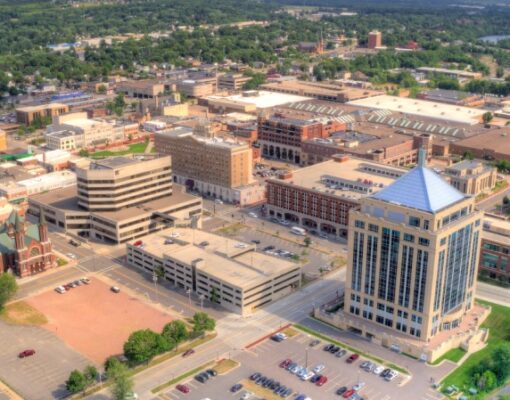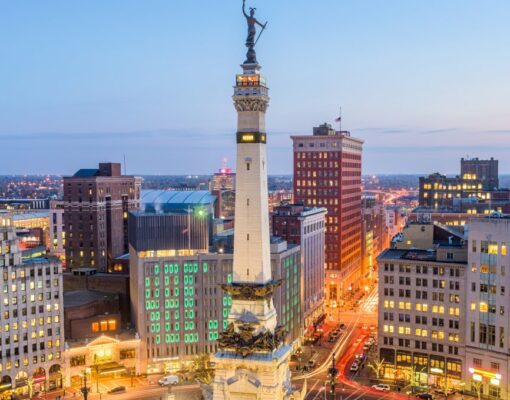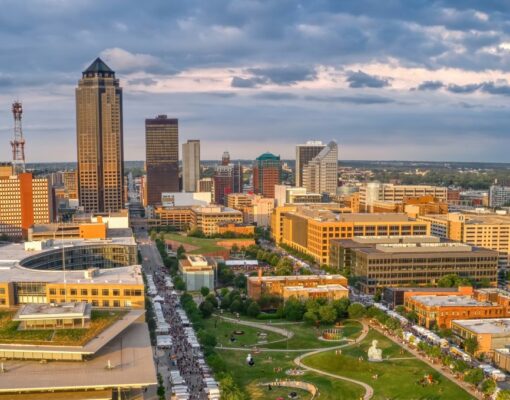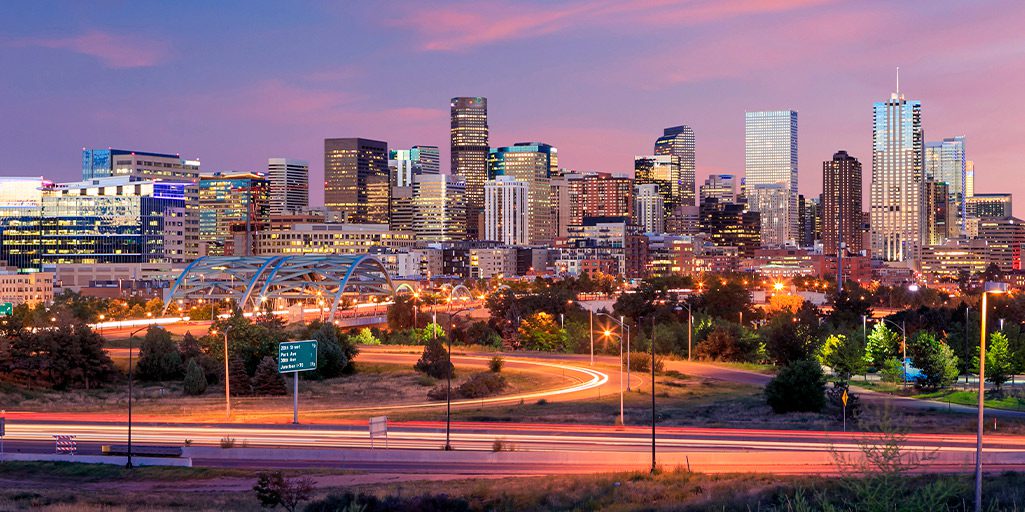
The Ultimate Guide to Moving from Minneapolis to Denver
March 25, 2025
Relocating from Minneapolis to Denver isn’t just about changing cities; it’s about embracing an entirely new lifestyle. While Minneapolis is known for its lakes, bike-friendly streets, and vibrant arts scene, Denver offers a unique blend of urban sophistication and outdoor adventure. With 300 days of sunshine, stunning mountain views, and a booming economy, the Mile High City is an attractive destination for professionals, families, and adventure seekers alike.
This guide will walk you through everything you need to know for a seamless move from Minneapolis to Denver, from finding the right neighborhood and adjusting to the altitude to understanding the local job market and making the most of Denver’s outdoor lifestyle.
Preparing for Your Minneapolis to Denver Move: Logistics and Planning
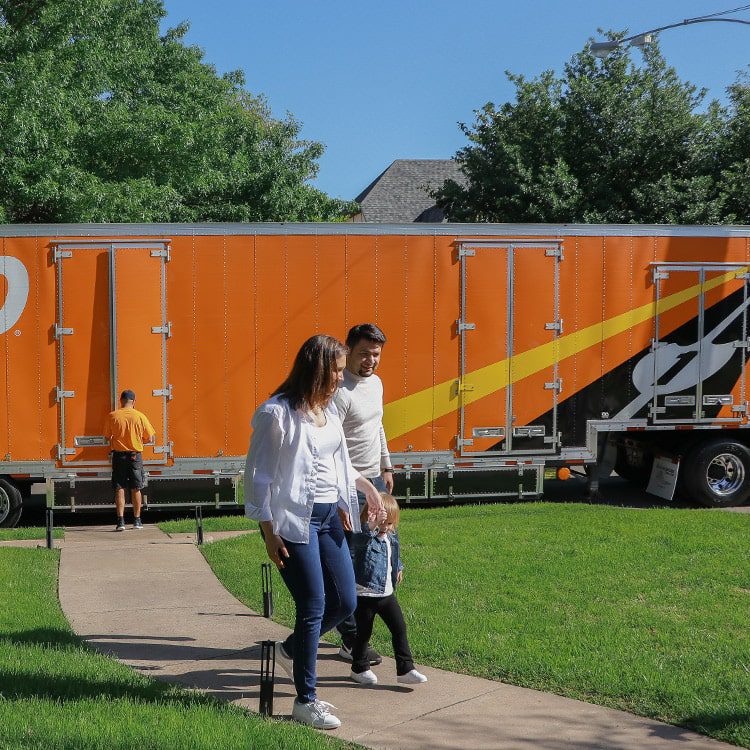
The Distance and Timeline
The journey from Minneapolis to Denver covers roughly 900 miles and can take between 2 and 7 days, depending on your moving method. If you’re hiring movers, book well in advance to secure the best rates and availability.
If driving, consider your route carefully—Interstate 35 and Interstate 70 offer the most direct path, but winter travelers should be mindful of weather conditions. If flying, be sure to arrange for transportation upon arrival and consider shipping essential belongings separately.
The Importance of Hiring Long-Distance Movers
For a stress-free relocation, hiring professional long-distance movers is highly recommended. Unlike local moves, a cross-country relocation requires specialized logistics, careful packing, and expert handling of fragile or valuable items. Professional movers provide:
- Efficient packing services: They ensure your belongings are safely packed to endure a long journey.
- Insurance and liability coverage: Your items are protected in case of damages or loss.
- Specialized equipment: Movers have tools for safely transporting heavy furniture, pianos, and appliances.
- Time and stress savings: Hiring professionals reduces the burden on you and allows for a smoother transition.
When selecting a moving company, compare multiple quotes, check online reviews, and verify their licensing and insurance credentials through the Federal Motor Carrier Safety Administration (FMCSA).
Downsizing
Since moving long-distance can be costly, consider downsizing before you pack. Sell, donate, or discard items you no longer need to lighten your load. Some effective strategies include:
- Hosting a garage sale before moving to declutter and make extra cash.
- Donating items to local charities or thrift stores.
- Digitizing paperwork and photos to reduce unnecessary bulk.
Setting Up Utilities and Services in Denver
Before moving, arrange for the transfer or setup of essential services in Denver, including:
- Electricity and gas: Xcel Energy is Denver’s primary provider.
- Water and waste management: Denver Water and Waste Management handle city services.
- Internet and cable: Popular providers include Xfinity, CenturyLink, and T-Mobile 5G Home Internet.
- Mail forwarding: Update your address with USPS to forward mail.
By handling these logistics in advance, you can ensure a smoother transition into your new home without unnecessary delays or disruptions.
Quick Comparison Table: Minneapolis vs. Denver
| Factor | Minneapolis | Denver |
| Climate | Cold, snowy winters; humid summers | Milder winters; dry, sunny climate |
| Altitude | 830 ft above sea level | 5,280 ft above sea level (can affect newcomers) |
| Housing Costs | Median home price: $312,000; Rent: ~$1,484 | Median home price: $615,000; Rent: ~$1,600+ |
| Cost of Living | Lower overall | Higher overall but lower state income tax |
| Job Market | Strong healthcare, retail, and tech sectors | Growing tech, aerospace, healthcare, and finance sectors |
| Outdoor Life | Lakes, parks, biking trails | Mountains, hiking, skiing, national parks |
| Public Transit | Light rail, buses, bike-friendly | Light rail, buses, ride-sharing, bike-friendly |
| Cultural Scene | Strong arts, music, and theater scene | Thriving arts, music, and craft beer scene |
| Traffic | Moderate congestion | More congestion, especially during ski season |
Finding the Perfect Neighborhood in Denver
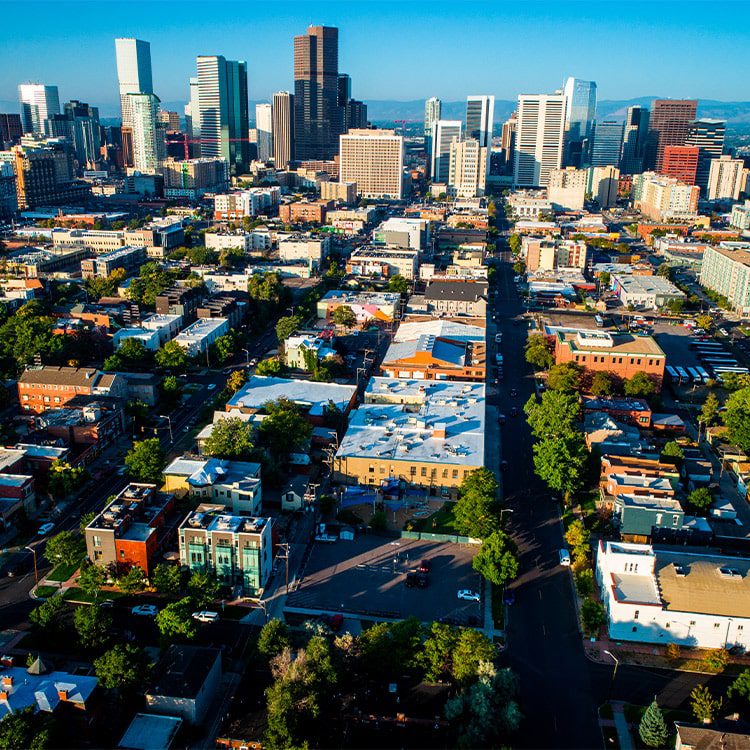
With over 80 neighborhoods, Denver has something for everyone. Here’s a breakdown of some popular options:
Best for Young Professionals
- LoDo (Lower Downtown): A historic district with trendy bars, restaurants, and easy access to public transit.
- RiNo (River North Arts District): A vibrant, artsy area with breweries, murals, and creative spaces.
Best for Families
- Washington Park: Tree-lined streets, spacious homes, and excellent schools.
- Central Park (formerly Stapleton): A master-planned community with parks, playgrounds, and family-friendly amenities.
Best for Budget-Conscious Movers
Montbello and East Colfax: More affordable housing options while still offering easy access to downtown.
Best for Luxury Living
- Cherry Creek: Upscale condos and townhomes with high-end shopping and dining.
- Hilltop: Spacious historic homes in a peaceful, residential area.
Understanding Denver’s Housing Market
Cost of Living in Denver
Denver’s cost of living is generally higher than Minneapolis, but salaries and tax advantages help balance expenses. Here’s a breakdown:
- Housing: Higher home prices and rents than Minneapolis, with median home prices at $615,000 and about 839 sq ft rentals averaging $1,600+ per month.
- Utilities: Electricity and gas bills are slightly lower than the national average, but water rates tend to be higher due to Colorado’s semi-arid climate.
- Groceries: Expect to pay more for fresh produce and organic products; local farmer’s markets can offer better deals.
- Transportation: Gas prices are comparable to the national average, but parking can be costly in downtown areas.
- Healthcare: Denver has excellent healthcare facilities, but medical costs can be slightly higher than in Minneapolis.
- Entertainment and dining: Eating out and enjoying Denver’s entertainment scene can be pricier, with restaurant meals averaging $15-25 per person.
Home Prices and Rent Comparison
Denver’s housing market is more expensive than Minneapolis:
- Median home price: $615,000 (Denver) vs. $312,000 (Minneapolis)
- Average rent: $1,600+ for an 839 sq ft apartment
- Property taxes: Lower in Colorado compared to Minnesota, averaging 0.49% of assessed home value versus 1.1% in Minnesota.
- Home insurance: Slightly higher in Denver due to increased risks of wildfires and hailstorms.
While Denver’s costs are higher, the city offers a strong job market and quality of life to balance the expenses. Many new residents find that higher salaries and lower state income tax (4.4% in Colorado vs. up to 9.85% in Minnesota) help offset the cost differences. Additionally, demand remains high due to Denver’s sustained population growth, making it a competitive but rewarding market for buyers and renters alike.
Finding the Right Home in Denver
If you’re planning to buy or rent, consider working with a local real estate agent who understands the competitive market. Online platforms like Zillow, Redfin, and Apartments.com can also help you compare listings and set realistic expectations. Given Denver’s limited housing inventory, being pre-approved for a mortgage or ready with a strong rental application will increase your chances of securing the home you want.
Adjusting to Denver’s Climate and Altitude
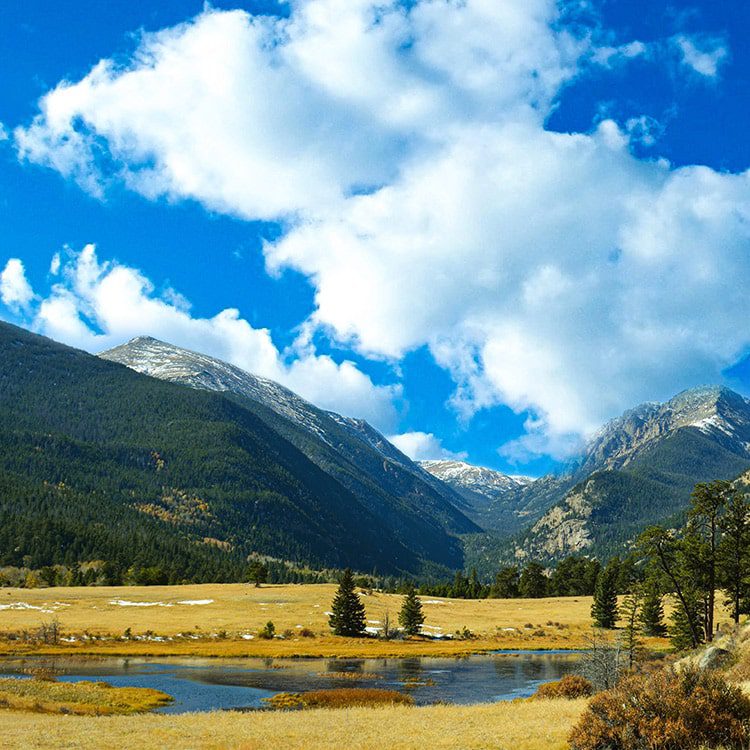
High-Altitude Living
Denver sits at 5,280 feet above sea level, which affects hydration, alcohol tolerance, and physical activity. The thin air can lead to altitude sickness for some newcomers, causing headaches, dizziness, and fatigue. To adjust:
- Drink plenty of water (double your normal intake at first) to stay hydrated and prevent headaches.
- Limit alcohol intake (it hits harder at altitude) since lower oxygen levels intensify its effects.
- Ease into exercise to avoid altitude sickness; start with light activity and gradually increase exertion.
- Consume high-iron foods like leafy greens and lean meats to help your body adapt more efficiently.
Monitor oxygen levels if you have respiratory conditions, and consider carrying a small canister of supplemental oxygen for relief.
Weather Differences
Denver’s climate is known for its extremes, with rapid temperature changes and varying seasonal conditions. Unlike Minneapolis, where winter can last for months, Denver enjoys sunny breaks between snowfalls. Here’s what to expect:
- Winters: Milder than Minneapolis but still snowy (avg. 60 inches of snow per year). Snow often melts quickly due to the strong sun.
- Summers: Warmer, drier, and sunnier (avg. 89°F highs), with low humidity making the heat more bearable.
- Sun exposure: Higher UV levels—wear sunscreen year-round and invest in polarized sunglasses to reduce glare.
- Unexpected weather shifts: Temperature swings of 30-40 degrees within a single day are common; always dress in layers.
- Hail storms: Denver experiences some of the worst hailstorms in the country, particularly in late spring and early summer—vehicle and home insurance with hail coverage is highly recommended.
Adjusting to Denver’s altitude and climate may take a few weeks, but with preparation and awareness, you’ll soon enjoy the city’s year-round outdoor-friendly weather.
Navigating the Job Market
Denver’s economy is thriving, with strong industries including:
- Technology: Google, Amazon, and multiple startups
- Aerospace: Lockheed Martin, Ball Aerospace
- Healthcare: UCHealth, Kaiser Permanente
- Finance and Business Services
Tips For Job Seekers
- Network early via LinkedIn, Meetup, and local industry groups.
- Explore remote work options—Denver has a growing remote workforce.
- Leverage job boards like Built In Colorado for tech roles and Denver.org for local job postings.
Outdoor Lifestyle and Recreation
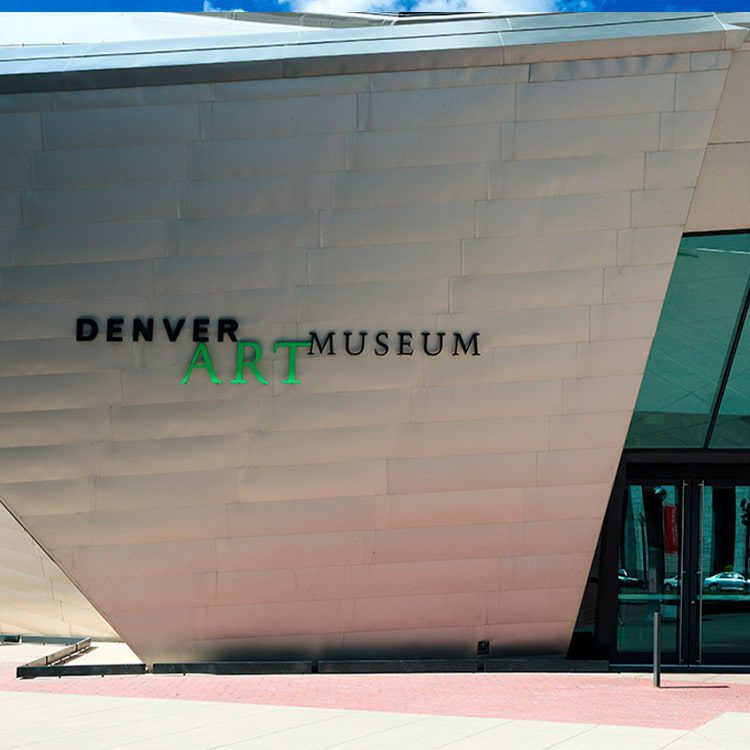
One of the biggest perks of living in Denver is the easy access to outdoor adventure.
Local Parks and Trails
- Washington Park: Perfect for running, biking, and paddleboarding
- Cherry Creek Trail: 24-mile path for biking and walking
- City Park: Home to the Denver Zoo and Science Museum
Weekend Getaways
- Red Rocks Park and Amphitheatre: Iconic concert venue with great hiking
- Rocky Mountain National Park: 90-minute drive for hiking, camping, and wildlife spotting
- Colorado Ski Resorts: Breckenridge, Vail, and Copper Mountain are just a short drive away
Transportation and Commuting
Public Transit
- Denver’s RTD system includes:
- Light Rail & Buses: Reliable options for getting around the city
- 16th Street Mall Shuttle: Free downtown transportation
- Airport Rail Line: Direct service to Denver International Airport
Biking and Walking
Denver is bike-friendly, with dedicated lanes and easy access to trails. Walking is feasible in central neighborhoods like LoDo and Capitol Hill.
Car Considerations
While a car isn’t necessary in downtown Denver, it’s helpful for exploring mountain areas. Beware of winter road conditions and heavy ski traffic on weekends.
Social Life and Community
Meeting People
Denverites are friendly and outdoorsy, making it easy to connect through:
- Hiking and outdoor groups (Colorado Mountain Club, Meetup.com)
- Social sports leagues (volleyball, kickball, softball)
- Craft brewery tours (Denver has over 150 breweries!)
- Music and arts events (Red Rocks, First Friday Art Walks)
Cultural Scene
Denver’s arts and culture rivals Minneapolis with:
- Denver Art Museum and Performing Arts Complex
- Music venues like the Ogden Theatre and Fillmore Auditorium
- Festivals like the Great American Beer Festival and Denver Film Festival
Final Tips for a Smooth Transition
Before You Move
- Visit Denver first to explore neighborhoods and get a feel for the city.
- Set a moving budget to cover all expenses, including hidden costs like deposits and service setup fees.
- Start job hunting early to secure employment before or soon after the move.
- Hire a reputable long-distance moving company to ensure your belongings arrive safely and on time.
Once You Arrive
- Give yourself time to adjust to the altitude by staying hydrated and pacing physical activity.
- Explore local businesses to support your new community and discover favorite spots.
- Join local Facebook groups, Meetup events, or professional organizations to meet fellow transplants and locals.
- Embrace the outdoor lifestyle—hiking, biking, and skiing are all part of Denver’s culture.
Useful Resources
- Federal Motor Carrier Safety Administration (FMCSA): Verify moving company credentials.
- Colorado DMV: Register your vehicle and obtain a driver’s license.
- Denver Public Transit (RTD): Check public transportation options.
- Denver Newcomer Guide: Find local events and resources for settling in.
- Nextdoor App: Connect with your new neighborhood community.
- Denver Weather and Road Conditions: Stay updated on road closures and weather forecasts.
By planning ahead, taking advantage of these resources, and immersing yourself in the local community, your transition to Denver will be a smooth and rewarding experience!
Move from Minneapolis to Denver with Piepho
Moving from Minneapolis to Denver is a big transition, but with Piepho by your side, it’s going to be an exciting one! Whether you’re relocating for work, adventure, or a fresh start, trust our experienced long-distance movers to handle every detail.
From expert packing to safe, on-time delivery, we ensure a smooth transition to your new Mile High City home. Get your free moving quote today!


